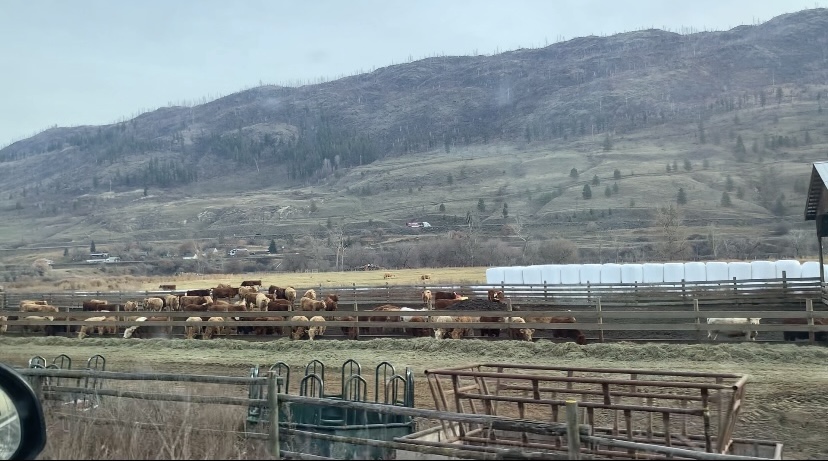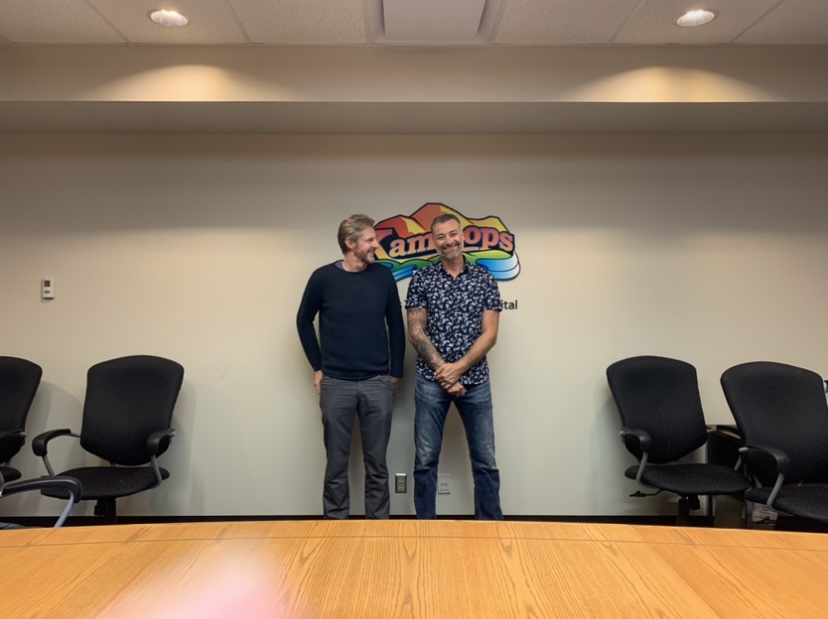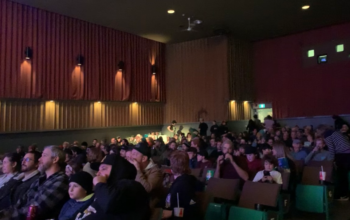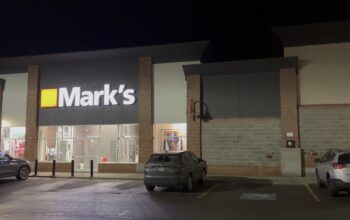
Customers of Noble Creek Irrigation System are faced with a challenge in light of the decommissioning process that has been threatening to start for years and has finally begun.
Greg Wightman, City of Kamloops City of Kamloops utilities manager, says the system was constructed in the 1960s by the BC Fruitland Irrigation District. When it amalgamated with the city in 1968, Wightman says its assets, liabilities and everything came with it. “As we’ve kind of looked at the asset management of that system, it was it was never built by the city, it wasn’t built kind of by our standards.”
“This year in April and May as we saw the water start to come up there was significant erosion around the intake,” Wightman says.
Deven Matkowski, City of Kamloops engineering manager, says there are problems with the way the intake system was designed back in the day that isn’t sustainable during drought seasons. “It can’t even provide the water during the later summer when the customers need it.”
Erosion is the largest concern on the matter. In a City Council meeting on Aug. 15 this summer, an NCIS customer, Cat LaPointe, pointed out that erosion has been a concern since 1998. She stated the intake wasn’t the issue.
Since about 2016 the issue has been brought before council, says Wightman.
“Council directed the formation of a working group, which is co -chaired by myself and one of the customers from the system,” he says about the current decommissioning initiative. “The directive we had previously was run it [the system] to 2028.”
The working group that was formed consists of “representatives of the Noble Creek Irrigation System customers, the Noble Creek Irrigation Society, City of Kamloops staff, qualified professional consultants, and appropriate staff from the Ministry of Forests.”

The teams that form this group are for infrastructure decommissioning, temporary pumping options and decommissioning program payment.
Not containing an NCIS customer representative is the payment program team. Wightman says the payment amount is $3.2-million, to be distributed based on the amount of irrigable land the customers pay for.
“It’s such a mixed use over there and that’s the real challenge,” he says. Some businesses rely more heavily on the stream of water. Wightman says for some, “they’re doing things with that water that probably isn’t crucial to their business.”
He says the people with operations requiring steady access to water such as for food crops would be the most impacted.
Part of the customers’ upset surrounds the importance of food crops in the community, specifically this summer. On Sept. 5 at City Hall, Debbie McBride voiced how produce from her farm was given to evacuees and firefighters on MacArthur Island after wildfire evacuations. She said the leftovers were given to homeless people on Tranquille Road.
Thistle Farms made a Facebook post on Aug. 25 telling evacuees to come out and collect free food.
Part of the working group’s purpose is to try and transition customers off the system. Wightman says the payment program can help with finding their own system or finding other uses for their land.
Matkowski says the end goal is for these agricultural businesses to have their own systems. “So whether that’s groups of them get together and have a small irrigation district where it’s five or six or forty would be the maximum because that’s what’s out there.”
Wightman says it wouldn’t have been financially sustainable for the council to put money in for a new irrigation system that’s serving 41 customers. “The rates would have to be too high.”
The customers have been vocal about the decommissioning initiative. “They’re upset they’re losing this service for sure,” Wightman says.
On Aug. 15, the city council meeting focused heavily on the topic.
Adam Woodward, NCIS user and co-chair of the working group that has since been formed, wanted more time before the decommissioning began. Recorded minutes of the meeting said he “asked if all members of Council have had time to review the correspondence and were aware that users wouldn’t have irrigation for the 2024 farming season.”
Not even a month later, on Sept. 5, the issue was brought up and discussed further. A customer who spoke up was Justin Fellenz, who reiterated concerns about the 2024 farming season.
“I think there’s going to be a lot of kind of adaptation that’s going to be required on behalf of the businesses, right?” Says Wightman, adding that they’ve been aware for a number of years that the system was in jeopardy.
Because of this, “some have been pretty proactive in planning other sources of water or changing their practices even,” he says. “Maybe they’re growing crops that, you know, don’t need daily constant irrigation.”
Matkowski says that golf courses and other farmers in different areas of the city generally have their own private systems.
He says about NCIS customers transitioning into private systems, “So absolutely there’s a change, and it’s gonna be painful and you know, it will be hard and that’s unfortunate, that’s terrible, but it’s definitely something that’s doable.”

